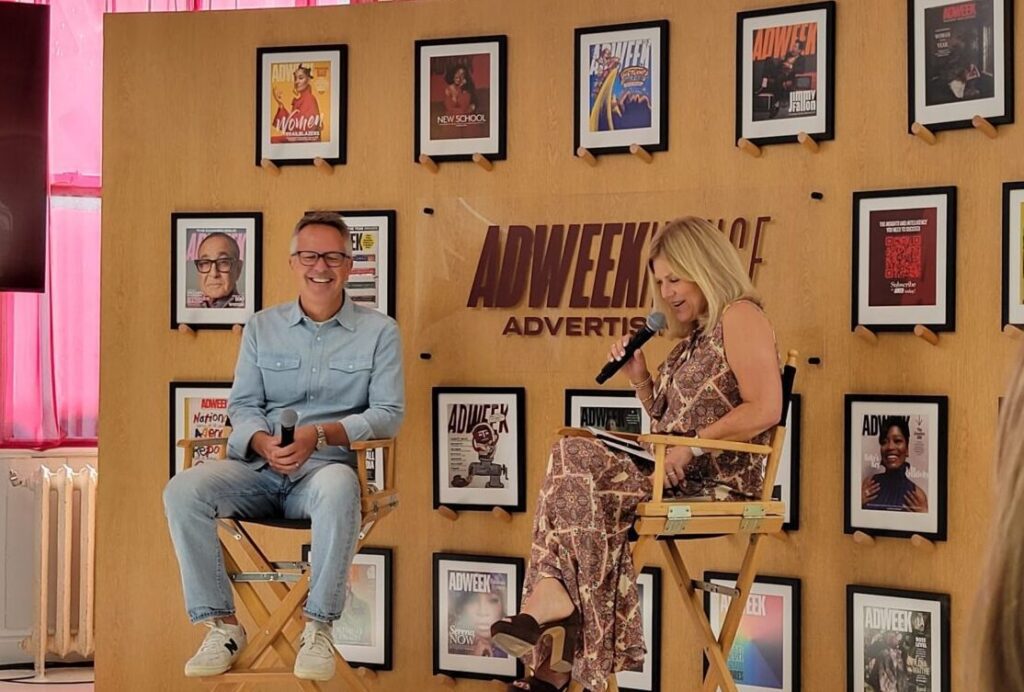Tired of the usual dreck from Hollywood? Then do what many New York cinephiles do: Head to the Film Forum, a nonprofit theater, and catch up on challenging new films both from the U.S. and overseas.
And if you can’t do that, sign up for the Film Forum e-mail newsletter. It’s a good way of experiencing the “cinema of ideas” long distance.
Film Forum was started in 1970 in a small loft on New York’s Upper West Side with 50 folding chairs and a 16 millimeter projector. Today, thanks to director Karen Cooper, it occupies a three-screen theater on West Houston St. on the border of Soho and Greenwich Village,
The independent theater premieres a new film every two weeks, everything from Jean-Luc Godard’s “Notre Musique” to the documentary “State of Fear, the Truth About Terrorism.” And it offers a full repertory schedule of classics like “Fallen Idol,” a 1948 movie by director Carol Reed.
This mix of old and new pulls in 275,000 attendees per year. And ticket sales provide 59% of the $4 million operating budget. But there are many challenges, one being how to relay an ever-changing schedule while expanding Film Forum’s national base.
For years, the theater relied mainly on its print calendars. But it started Internet ticketing in 2001, and this turned out to be a hit with filmgoers who had seen the “sold out” sign at the box office once too often.
Soon 20% of all tickets were being sold online, along with a third of all membership purchases and renewals. In 2003, Film Forum decided to capitalize on this trend by starting the newsletter.
“It made sense to follow them along, and give them more regular weekly updates,” says general manager Dominick Balletta. And now? “We’re using the newsletter as a lure to get people to visit us, to read about the films and also to create new revenue streams.”
That e-zine goes every Wednesday to an opt-in list of 26,801 people, 19,800 of whom live in the New York area, and is growing at a rate of around 300 per week, according to programmer and publicist Mike Maggiore. The issues are written and produced inhouse, and launched through Net Mail from Blackbaud.
A typical issue features blurbs and colorful mini-posters for the current films, along with links to video clips for some, and features like the Movie Challenge, a weekly quiz.
The film writeups are short and sweet. For example, the new German work, “Sophie Scholl, the Final Days,” is described as “a drama based on transcripts from the interrogation & trial of the woman who stood up to the Third Reich.” The blurb for another new film, “Our Brand Crisis,” states: “American-style campaign tactics reborn in Bolivia: Rachel Boynton’s new muckraking documentary premieres Wednesday, March 1.” (It took the inhouse writing staff “a few tries” to master this pared-down style, Maggiore admits).
Readers who are intrigued by these blurbs can link through to find additional information on the Film Forum Web site (www.filmforum.org), which receives roughly 8,000 hits per day. They can also buy tickets, see video trailers for some films by linking to the distributor’s Web sites, or in the case of the Scholl movie, order a book on the heroine. But that’s not all.
In addition, the e-zine alerts cinephiles to opening-night appearances by directors and actors like Peter Bogdanovich and Robert Henrey, who at age eight appeared in “Fallen Idol.” News of these Q&A sessions is often “late breaking, so they don’t make it into advertising or the print calendars,” says Maggiore.
Film Forum has been hosting these Q&A sessions for many years, but “almost none of them have been recorded, which is a great loss,” says Maggiore. But now they are being captured, and can heard for free thanks to the newest innovation: podcasts. Listeners can subscribe through the Web site or through Itunes. “It’s another way for you to think of us when you think of cinema even if you’re not in the tri-state area,” Maggiore says.
Yes, and it also helps make the Film Forum Web site “an encyclopedia of film history as we see it,” says Balletta.
Meanwhile, the theater has found another way to serve local and long-distance subscribers. It is selling DVDs of films that debuted there “in advance of the street date at a discount,” says. The Feb. 22 newsletter offered a 25% discount on “The Untold Story of Emmett Louis Till,” a documentary that went on general sale two days later.
The DVDs are also being promoted in special e-mail blasts to the newsletter subscribers. Recipients are able to opt out of these mailings, but few do.
“People are receptive to it because they know we’re not selling Spiderman 2 on DVD,” Balletta laughs.
Does Film Forum send any other special e-mails? Occasionally. For example, it did one alerting readers that actor Donald Sutherland would be appearing at the opening of a documentary on Federico Fellini. It was sold out in less than a day.
Overall, though, “We’ve been very conscious of not flooding people with extraneous e-mails,” Balletta says. In line with that, it has avoided carpet bombing donors. There is no separate newsletter for donors or members.
Meanwhile, the print calendars are still mailed several times a year to roughly the same number of people as the newsletter.
Have the newsletter metrics influenced programming?
Not a bit. “We program independently,” Maggiore answers. “We’ve tried to make the newsletter an essential part of how we promote the films rather than the other way around.”
But there are signs that it has helped attendance. That number has been stable or even growing at a time when “every story you read coming out of Hollywood is that people are fleeing movie cinemas and multiplexes in droves,” Balletta adds.
 Network
Network



